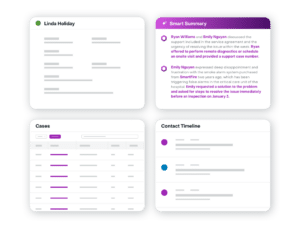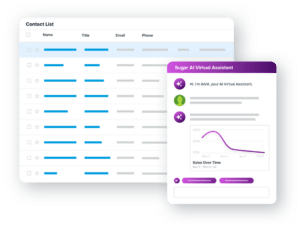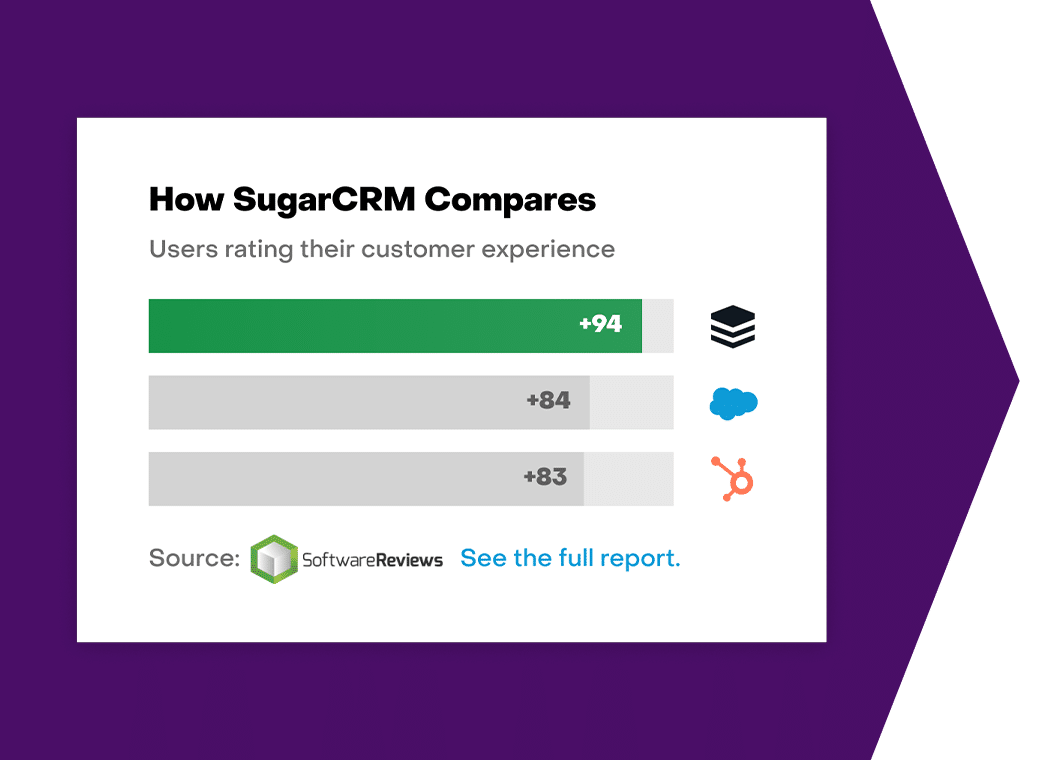Building Brand Loyalty Through Personalized Experiences with Generative AI
In today’s highly competitive market, building brand loyalty is more crucial than ever. Customers have numerous options at their fingertips, and retaining them requires more than just offering a good product or service. It requires creating personalized experiences that make customers feel valued and understood. This is where Customer Relationship Management (CRM) software powered by Artificial Intelligence (AI) comes into play. By leveraging AI, businesses can craft personalized experiences that not only meet but exceed customer expectations, fostering deep brand loyalty.
What we'll Cover:
Understanding the Power of Personalization
Personalization is more than just addressing customers by their names. It’s about understanding their preferences, behaviors, and needs to offer tailored experiences that resonate with them. According to a report by Epsilon, 80% of consumers are more likely to make a purchase when brands offer personalized experiences. Personalization makes customers feel valued, increasing their likelihood of becoming repeat buyers and advocates for your brand.
The Role of AI in Personalization
AI transforms personalization from a labor-intensive process into a scalable and efficient strategy. Here are several ways AI-powered CRM software can enhance personalization:
Customer Insights and Segmentation
AI can analyze vast amounts of data to uncover insights about customer behavior, preferences, and purchasing patterns. This information allows businesses to segment their audience more effectively and create personalized marketing campaigns that target specific customer groups with relevant messages.

Predictive Analytics
AI uses predictive analytics to anticipate customer needs and behaviors. By analyzing historical data, AI can predict future actions, such as which products a customer is likely to buy next or when they might need customer support. This foresight enables businesses to proactively engage customers with personalized offers and solutions.
Personalized Recommendations
One of the most visible applications of AI in personalization is recommendation engines. These engines analyze customer data to suggest products or services that match their preferences. For example, streaming services like Netflix use AI to recommend shows and movies based on viewers’ watching history, enhancing the user experience and increasing engagement.
Dynamic Content Creation
AI can create dynamic content that adapts to individual customer preferences in real-time. This includes personalized emails, website content, and even advertisements. By delivering content that resonates with each customer, businesses can significantly improve engagement and conversion rates.

Chatbots and Virtual Assistants
AI-powered chatbots and virtual assistants provide personalized customer service around the clock. These tools can handle a wide range of queries, from answering simple questions to guiding customers through complex transactions, all while learning and adapting to individual customer preferences over time.

Strategies for Effective AI-Powered Personalization
To maximize the benefits of AI-powered personalization, businesses should consider the following strategies:
Develop a Customer-Centric Culture
Creating a customer-centric culture is essential for successful personalization. Ensure that all team members understand the importance of personalized experiences and are committed to delivering exceptional customer service. Encourage collaboration between departments to share customer insights and create cohesive personalization strategies.
Invest in Quality Data Management
Accurate and comprehensive data is the foundation of effective personalization. Invest in tools and processes that ensure data quality and consistency across all touchpoints. Regularly update and cleanse your customer database to maintain its accuracy and relevance.
Prioritize Privacy and Security
With the increasing focus on data privacy, businesses must prioritize the protection of customer information. Implement robust security measures and comply with relevant data protection regulations. Clearly communicate your privacy policies to customers, ensuring transparency and building trust.
Overcoming Challenges in AI-Powered Personalization
While AI-powered personalization offers significant benefits, businesses may encounter challenges in implementation. Here are some common obstacles and strategies to overcome them:
Data Silos
Data silos occur when customer data is stored in separate systems, preventing a comprehensive view of the customer. To overcome this, integrate your CRM software with other data sources, such as marketing automation tools, e-commerce platforms, and customer service systems. This integration ensures a unified view of the customer, enabling more effective personalization.
Resistance to Change
Implementing AI-powered personalization may require changes in workflows and processes, which can meet resistance from employees. Address this by providing training and education on the benefits of AI and personalized experiences. Involve employees in the implementation process and encourage a culture of innovation and continuous improvement.
Ensuring Relevance
Personalization efforts can backfire if the content is not relevant or accurate. To ensure relevance, continuously update your AI algorithms and personalization rules based on customer feedback and behavior. Regularly test and refine your personalization strategies to align with evolving customer preferences.
Implementing AI-Powered Personalization in Your CRM Strategy
Integrating AI into your CRM strategy requires careful planning and execution. Here are some steps to help you get started:
- Define Your Goals: Identify the specific objectives you want to achieve with AI-powered personalization. This could include improving customer satisfaction, increasing sales, or enhancing customer retention.
- Collect and Analyze Data: Gather data from various sources, such as customer interactions, social media, and purchase history. Use AI to analyze this data and uncover insights that can inform your personalization strategy.
- Choose the Right Tools: Select AI-powered CRM software that aligns with your business needs. Look for features such as predictive analytics, dynamic content creation, and chatbot integration.
- Implement and Test: Roll out your AI-powered personalization strategy in phases, testing and refining it as you go. Monitor key metrics to ensure your strategy is delivering the desired results.
- Continuously Optimize: AI technology evolves rapidly, and so should your personalization strategy. Continuously gather feedback, analyze performance, and make adjustments to stay ahead of customer expectations.
The Future of AI in Personalization
The future of AI in personalization looks promising, with advancements in machine learning, natural language processing, and data analytics driving even more sophisticated and effective personalization strategies. As AI technology continues to evolve, businesses that leverage AI-powered CRM software will be better positioned to build lasting brand loyalty through personalized experiences.
Looking Forward: Generative AI and Sales
Building brand loyalty through personalized experiences is no longer a luxury; it’s a necessity. AI-powered CRM software provides the tools needed to create meaningful and personalized interactions that resonate with customers. By leveraging AI to understand customer behavior, predict needs, and deliver tailored experiences, businesses can foster deep brand loyalty, ensuring long-term success in an increasingly competitive market.
Incorporating AI into your CRM strategy not only enhances personalization but also streamlines operations and improves overall customer satisfaction. As more businesses recognize the value of AI-driven personalization, those who embrace this technology will stand out, creating loyal customers who advocate for their brand and contribute to sustained growth.
Interested in learning more about Generative AI? Check out what SugarCRM has to offer today!





